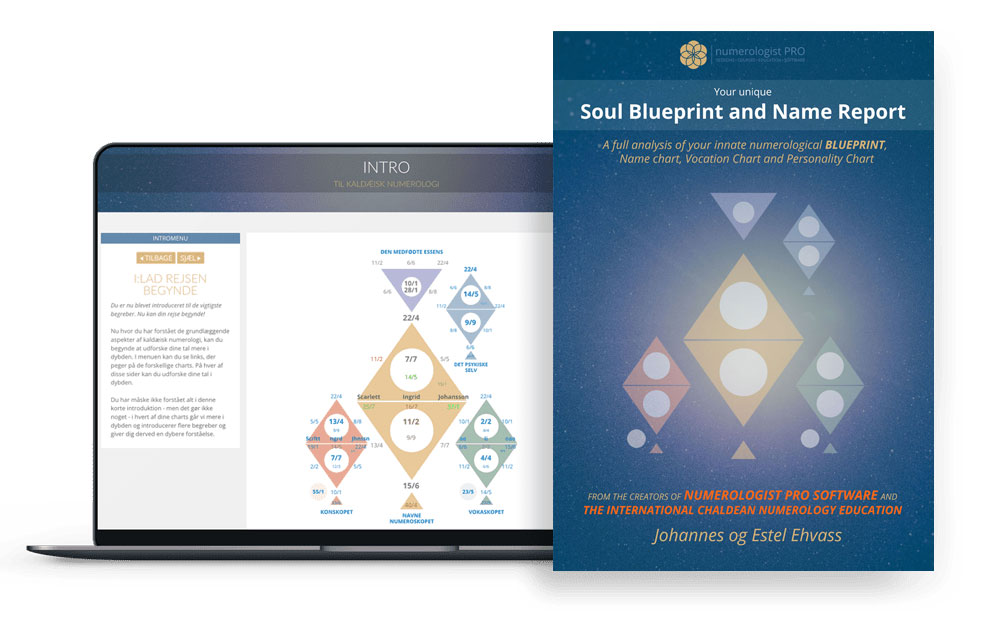The Enlightenment and Astrology

Johannes Ehvass
Welcome, dear reader! The Enlightenment, often hailed as the Age of Reason, ushered in an era where logic and empirical evidence reigned supreme. As society championed scientific discovery and rational thought, astrology faced a unique challenge. Positioned at the intersection of ancient beliefs and emerging skepticism, the celestial practice found itself both critiqued and revisited. Yet, even amidst this intellectual revolution, the allure of the stars persisted, reflecting the enduring human desire to find meaning beyond the tangible. Join me as we explore this dynamic period, where astrology navigated the delicate balance between tradition and transformation.
The Age of Reason: A Brief Overview
Introduction to the Age of Reason

The Age of Reason, often synonymous with the Enlightenment, was a transformative period in Western history that spanned from the late 17th to the early 19th century. During this time, the intellectual landscape of Europe experienced a significant metamorphosis. Ancient doctrines and traditional beliefs were reassessed, and a newfound emphasis was placed on reason, science, and individual rights.
The Enlightenment era, often considered to have been heralded by the Scientific Revolution, was influenced by the works of luminaries such as Francis Bacon and John Locke. Its onset is sometimes marked by René Descartes’ 1637 work, “Discourse on the Method,” which introduced the famous phrase “Cogito, ergo sum” (“I think, therefore I am”). Alternatively, some view Isaac Newton’s 1687 “Principia Mathematica” as a pivotal moment, signaling both the peak of the Scientific Revolution and the dawn of the Enlightenment. Traditionally, European history pegs the start of the Enlightenment at the death of Louis XIV of France in 1715, concluding with the French Revolution in 1789. However, modern historians often extend its end to the early 19th century, with some even suggesting Immanuel Kant’s death in 1804 as its final marker.
Foundations of the Enlightenment
Philosophical Beginnings
The Enlightenment era was, at its core, a philosophical movement. Thinkers like John Locke, Immanuel Kant, and Voltaire spearheaded a revolutionary way of considering humanity’s role in the universe. Locke, for instance, posited that humans were born as blank slates, and it was their experiences and environment that shaped their beliefs and behaviors. Such perspectives shifted away from the prevailing views of predestination and innate sinfulness.
Rise of Secularism
Religion had dominated the European landscape for centuries. However, the Enlightenment era marked the rise of secularism as thinkers began to champion the separation of church and state. This didn’t necessarily mean a rejection of faith; rather, it proposed that religious beliefs should not dictate governance or scientific pursuit.
Scientific Exploration
Galileo’s astronomical discoveries, Newton’s laws of motion, and advancements in biology and chemistry collectively reshaped humanity’s understanding of the natural world. The Scientific Revolution, which preceded and then overlapped with the Enlightenment, played an instrumental role in fostering an environment where empirical evidence was paramount.
Impact on Society and Governance
Birth of Modern Democracy
The political landscapes of Europe and the Americas were forever altered during the Age of Reason. The ideas of individual rights, representative governance, and personal freedom began to take root. Philosophers like Rousseau and Montesquieu wrote extensively about governance, which later inspired revolutions and the establishment of democratic states.
Economic Reforms and Mercantilism
The Enlightenment era wasn’t just about high philosophy and political revolutions. Economic theories and practices, too, underwent significant scrutiny and transformation. Adam Smith’s “The Wealth of Nations” is a testament to this shift, advocating for free markets and criticizing mercantilist policies.
Cultural and Artistic Flourishing
The Enlightenment wasn’t solely a time of cerebral pursuits. The arts flourished during this period, with classical music, literature, and visual arts reflecting the era’s values. Composers like Mozart and Beethoven, writers like Jane Austen, and artists like Jacques-Louis David all contributed to a rich tapestry of Enlightenment-era culture.
Conclusion: The Lasting Legacy of the Age of Reason
The Age of Reason left an indelible mark on the annals of history. While it paved the way for significant societal advancements, it also posed questions that remain pertinent today. What is the role of reason in human lives? How does society strike a balance between faith and evidence-based practices? These inquiries are a testament to the enduring relevance of the Enlightenment era.
The Scientific Revolution and its Divergence from Astrology
Introduction to the Scientific Revolution
The Scientific Revolution, spanning roughly from the 16th to the 18th century, represented a seismic shift in how humanity perceived the world. Rooted in empirical observation and systematic experimentation, this period laid the groundwork for modern science and deeply influenced the Age of Reason. As this new scientific methodology took hold, its relationship with traditional beliefs, including astrology, began to evolve in complex ways.
The Pillars of the Scientific Revolution
The Heliocentric Model
Copernicus’s proposal of a sun-centered universe challenged the prevailing geocentric model. This heliocentric theory, later substantiated by the works of Galileo and Kepler, redefined humanity’s place in the cosmos. Such a profound shift had profound implications not just for astronomy but also for astrology, which relied heavily on the geocentric model.
New Tools and Techniques
The invention of the telescope by Galileo Galilei amplified our understanding of the skies. Observing celestial bodies became more precise, leading to discoveries that refuted long-held beliefs. For instance, the observation of Jupiter’s moons contradicted the notion that all celestial bodies revolved around the Earth.
The Methodical Approach
Francis Bacon and René Descartes championed the scientific method – a systematic approach to inquiry based on observation, hypothesis, experimentation, and conclusion. This method became the backbone of modern science, demanding evidence and repeatability over traditional reliance on ancient texts or spiritual insights.
The Shift Away from Astrological Thought
Challenges to Traditional Beliefs
As the scientific method demanded empirical evidence, many astrological practices came under scrutiny. Predictions and explanations provided by astrologers often lacked the empirical evidence that this new scientific era demanded. Consequently, astrology’s once-central role in explaining natural phenomena began to wane.
Astronomy and Astrology: The Separation
For centuries, astrology and astronomy were inseparable. However, the Scientific Revolution marked the beginning of a divergence. While astronomers sought to understand the universe through empirical observations and mathematical calculations, astrologers continued to interpret celestial patterns’ symbolic meanings. Over time, astronomy became a cornerstone of the natural sciences, while astrology’s influence diminished in academic circles.
Religious and Philosophical Critiques
The Church, which had for centuries integrated astrology into its worldview, began to see it as a challenge to its authority, especially as astrological predictions sometimes contradicted religious teachings. Additionally, philosophers, armed with Enlightenment ideals, began to question astrology’s validity, further pushing it to the periphery.
Astrology’s Adaptations and Persistence
Reform and Refinement
In response to scientific critiques, many astrologers sought to refine their methods, aiming for more precise and verifiable predictions. This led to the emergence of various astrological “schools” or approaches, each with its methodology and interpretations.
The Role of Popular Culture
While academic and scientific circles moved away from astrology, it found a home in popular culture. Almanacs, books, and later newspapers would feature horoscopes, ensuring that while astrology may have lost its scientific stature, it remained embedded in everyday life.
Integration with New Ideas
Astrology, being a fluid and adaptable discipline, began to incorporate Enlightenment ideas, emphasizing individualism and personal agency. This synthesis ensured its survival and relevance, even in an age dominated by reason and empiricism.
Conclusion: The Dual Legacy of the Scientific Revolution
The Scientific Revolution undeniably transformed our understanding of the universe. Yet, as much as it advanced new methodologies and ideas, it also highlighted the challenges in reconciling empirical science with traditional beliefs. Astrology’s journey during this period, from central societal pillar to a more niche yet enduring practice, encapsulates the broader tensions and transformations of the era.
Rise of Empiricism and its Impact on Astrology
Understanding Empiricism
Defining the Empirical Approach
Empiricism, a philosophical doctrine that emerged prominently during the Enlightenment, posits that knowledge is derived primarily from sensory experience. It champions observation and experimentation as the primary sources of human understanding, placing a reduced emphasis on inherited tradition or pure reason alone.
Key Figures in Empiricism
Prominent philosophers such as John Locke, George Berkeley, and David Hume were foundational in shaping empiricism. Locke, for instance, proposed the mind as a “tabula rasa” or blank slate, emphasizing the importance of experience in forming knowledge.
Empiricism vs. Rationalism
Contrary to empiricism, rationalism argued for reason as the primary source of knowledge. René Descartes and Baruch Spinoza were among its notable proponents. The tension between these two philosophies set the intellectual stage of the Enlightenment, influencing various disciplines, including astrology.
Empiricism’s Challenge to Astrology
The Demand for Observable Proof
With empiricism’s rise, the demands for tangible evidence and reproducible results became paramount. Astrology, with its symbolic interpretations and reliance on millennia-old traditions, faced increasing skepticism. The challenge was clear: could astrological claims withstand empirical scrutiny?
Debates on Causality
David Hume, one of empiricism’s stalwarts, posited that causality – the idea that one event causes another – is not directly observable but is inferred from regularity. This philosophy indirectly challenged astrological predictions, raising questions about whether the positions of celestial bodies truly “caused” earthly events or if humans were merely perceiving patterns.
Shift from Universal to Individualistic Interpretations
As the Enlightenment promoted individual rights and personal experiences, astrological interpretations began to adapt. Rather than broad, sweeping predictions for entire nations or large groups, astrologers began focusing more on individual horoscopes, reflecting the empiricist emphasis on personal experience.
Astrology’s Response to Empiricism
Evolution of Astrological Methods
In an age demanding evidence, many astrologers sought to refine their techniques, aiming for more empirical validity. They adopted more systematic methods in casting and interpreting charts, trying to merge tradition with the demands of the Age of Reason.
The Emergence of “Scientific Astrology”
Some astrologers, keen on aligning with the empirical zeitgeist, began to present astrology as a science. They argued that astrology’s principles, if systematically studied, could reveal consistent patterns. This “scientific astrology” aimed to bridge ancient wisdom with modern empiricism, though it faced criticism from both traditional astrologers and mainstream scientists.
The Synthesis of Mysticism and Empiricism
Recognizing the value in both empirical knowledge and mystical insight, some Enlightenment thinkers sought a middle ground. Figures like Emanuel Swedenborg and William Blake, while not astrologers per se, represented a broader movement to integrate spirituality with the burgeoning empirical sciences.
Conclusion: A Dynamic Interplay
The rise of empiricism during the Enlightenment presented both challenges and opportunities for astrology. While it undeniably prompted a re-evaluation of astrological practices and beliefs, it also spurred innovation within the discipline. The tension between empiricism and astrology during this period is emblematic of a broader societal grappling with tradition and progress, a dance that continues to shape our understanding of the world.

Johannes & Estel: Renowned authorities in Numerology, Astrology, and the esoteric arts. As the founders of Scandinavia's premier Numerology school, we're delighted to share our insights through this curated series on astrology. Dive in and discover the stars.
The Worlds Most Advanced Numerology Report

Your birthdate reveals your unique life purpose, potentials, talents, weaknesses, and karma in this life.
Your names show what you attract into your life regarding your career, relationships, happiness, money, and success.
GET THE REPORT HERE
Introduction to Astrology
The history of Astrology
Moving beyond deterministic astrology
Foundation of Astrology: Planets, Signs and Houses
Astrology and the Holographic Universe
The Holographic Universe
The Human Psyche as a Mirror to The Solar System
The Human Body as a Mirror to The Star Signs
Astrology Background
Egyptian Astrology
Mayan Astrology
Chinese Astrology
Indian Astrology - Jyotish
Celtic Astrology
Tibetan Astrology
Mesopotamian Astrology
Early Mesopotamian Astrology: The Dawn of Celestial Divination
Enuma Anu Enlil: The Epicenter of Babylonian Celestial Omen Interpretation
Babylonian and Chaldean Astrology
Babylonian and Chaldean Astrology
Chaldean influence and evolution
Chaldean Wisdom: Safeguarding and Transmitting Astrological Knowledge
Hellenistic Astrology
Hellenistic Astrology background
Claudius Ptolemy and Tetrabiblos
Vettius Valens
Dorotheus of Sidon
Persian Astrology
Persian Astrology background
Sassanian Astrology
Late Antiquity and The Transition Period
Late Antiquity and The Transition Period
Hellenistic to Islamic Transition: The Torchbearers of Astrological Wisdom
Islamic Golden Age
Arabian Astrology Background
Arabian Astrology Contributions
Medieval Astrology
Introduction: The Medieval Cosmos
Monastic Preservers: Astrological Knowledge in the Dark Ages
Astrology in Medieval Medicine
Kings, Queens, and Constellations: Astrology in the Medieval Court
The Church and the Stars: A Contentious Relationship
Universities and Scholastic Pursuits: Academic Astrology
Astronomy & Astrology: Tools of the Trade
Medieval Astrological Houses and the Synthesis of Traditions
Transition to the Renaissance: Humanism and the Celestial Arts
Reflections: Medieval Astrology's Echoes in Modern Practice
Astrological Art of the Middle Ages
Famous Medieval Astrologers
Medieval Astrological Texts
Renaissance Astrology
Renaissance Humanism and Astrology
Scientific Advancements and Astrology
The Social Fabric: Astrology in Everyday Renaissance Life
Court Astrologers of the Renaissance
Controversies and Conflicts: Astrology Under Scrutiny
Renaissance Texts and Authors: Continuation of a Tradition
Astrology and Art: Celestial Imagery in the Renaissance
Renaissance Astrological Practices: Evolutions and Innovations
End of the Renaissance: The Gradual Decline of Astrological Influence
Renaissance Astrology's Echo in the Modern World
Enlightenment Astrology
Introduction: The Enlightenment and Astrology
Challenging the Stars: Astrology's Critics during the Enlightenment
Astrology and the New World
Astrology in the 19th Century
The Dawn of Psychological Astrology
Astrology in the 20th Century: A Modern Renaissance
Astrological Associations and Schools
Modern Controversies and Astrology
Astrology and Popular Culture
Astrology and Technology
Current Trends and Future Directions in Astrology
Conclusion: Reflecting on Astrology's Evolution
The Planet Significances
The Sun in Astrology
The Moon in Astrology
Mercury in Astrology
Venus in Astrology
Mars in Astrology
Jupiter in Astrology
Saturn in Astrology
Uranus in Astrology
Neptune in Astrology
Pluto in Astrology
Chiron in Astrology
Black Moon Lilith in Astrology
Pars Fortuna in Astrology
Ceres in Astrology
Houses in Astrology
Introduction to Astrological Houses
The Angular Houses
The Succedent Houses
The Cadent Houses
The 1st House
The 2nd House
The 3rd House
The 4th House
The 5th House
The 6th House
The 7th House
The 8th House
The 9th House
The 10th House
The 11th House
The 12th House
Interaction Between Houses
Derived Houses, House Rulers, and Interceptions
Conclusion: Synthesizing House Knowledge
All Materials © 2023 & 2024 Numerologist PRO
Terms of Service: Information provided by Numerologist PRO and/or from this web site is not intended as advice (medical, psychological, financial or other), nor is it intended to replace your work with a qualified professional (medical or otherwise). You should maintain your relationship with your providers and consider the services of this site as informational only. Any information, stories, examples, or testimonials presented on this website do not constitute a warranty, guarantee, or prediction regarding the outcome of an individual. This web site is a sharing of knowledge and information of numerology/energy work based on the experiences of Numerologist PRO. You are encouraged to make your own decisions based on your own research and inner guidance. By booking and receiving services, you agree to fully release and hold harmless Numerologist PRO and all it's affiliated numerologists from and against any liability or claim that may arise out of or in connection with their service(s).
Numerologist PRO © 2021

CONTACT
numerologist@numerologistpro.com
LIKE US, and get free numerology tools, info about your personal numbers, best business dates of the year - and more!
YOUR FREE NUMEROSCOPE CHART
Enter your name and email below and get access to our free online numerology chart tool.